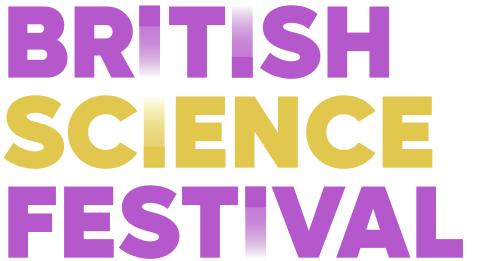Each year, our Festival team plays a vital role in making the event a success – from logistics to evaluation. We recently caught up with Leo, who worked as an Evaluations Assistant at the 2023 Festival in Exeter and returned for the 2024 Festival in London as an Evaluations Officer.
At the Festival, he captured people’s experiences and attitudes towards science each day, helping us ensure the event stays inclusive and engaging for all.
Leo currently works as a Public Involvement Officer at Imperial College London’s Patient Experience Research Centre. He provides guidance, advice, and training to researchers at Imperial on how they can meaningfully involve the public in their research.
What was your role at the British Science Festival?
In 2023, I was an Evaluations Assistant, and in 2024, the BSF team kindly invited me back as an Evaluations Officer. My role was to capture people’s experiences of the Festival – what they liked or didn’t like – and understand who the Festival is reaching.
A big part of the Festival and the British Science Association’s mission is to engage people who are not currently interested in science or feel that science isn’t for them.
So, we also gathered demographic data (provided voluntarily by the Festival audiences) and measured the impact of the Festival, whether people learned anything and how relevant the events and activities were to them.
We stopped people and asked them to reflect on their experience. We asked questions about their attitudes towards science, which venues or activities they attended and what could be improved.
What did you enjoy most about the role?
I really enjoyed interacting with people and facilitated those interactions. It was about creating a welcoming environment for the public, but also capturing their experiences. I learned a lot about how to properly conduct evaluations for one of the biggest festivals in the UK, which was fascinating because the Festival changes location each year.
I enjoyed seeing different perspectives from different venues. Another thing I really appreciated was how friendly and welcoming the team was – we had fun despite it being a very time-intensive week.
How did the role at the Festival support your wider career goals?
I’ve been interested in public engagement for a while, and I wanted to meet the people behind the Festival and understand how it works in the UK context. Evaluation and measuring impact are very important in public and community engagement, so I thought this experience would give me transferable skills and insights.
I also wanted to learn about qualitative and tangible methods to understand people’s perspectives and the challenges of engaging with the public at an event where people might be having a good time and not want to be stopped for an interview.
What’s one key thing you’ve learned about people’s perceptions of science from the Festival?
For me, and I think for the Festival too, it’s about going where people and communities are and where they feel the most comfortable. We should bring science to them, not expect them to come to us. It’s important to bring the fun and flair of science to places where people already are.
For example, when interviewing parents and their kids, I saw the importance of it being a family experience. Kids were excited to learn and wanted to explore more. For adults, I noticed the breadth of content and different ways people can engage – from silent discos to science activities in a pub to musical instruments and talks about spiders. That variety really stood out to me.
Do you have a favourite event or moment from the Festival?
One memorable event was at Exeter’s Guildhall Shopping Centre during a Festival Friday Late. There was a rap performance about climate change, followed by a panel discussion with people from charities, organisations, and scientists advocating for climate action.
Later that evening, there was a creative workshop where we created sculptures with Play-Doh while discussing gender identity, art, sexual health and living beyond the binary. People from the trans community were there, sharing their lived experiences, leading to meaningful conversations while creating art. It was a very empowering experience!
Last year in London, I really enjoyed the Sonic Spider performance, where we sat around listening to music inspired by nature’s sounds. It was fascinating.
Another memorable moment was when there was a heatwave and we were at Exeter Cathedral. The Festival team and building managers were amazing; they brought sunscreen for everyone. At some point, the Festival and British Science Association directors even brought us ice cream and water while we were working. This created a real sense of community and showed how everyone cared about our well-being.
What advice would you give someone working at the Festival for the first time?
Be open, flexible, and friendly. The team is very welcoming and supportive. Don’t worry about needing to know everything – they will be there to help you with whatever you need. You will have a lot of fun. Try to experience the Festival to the fullest, because although you’re working, you also get to live the Festival by joining activities, understanding people’s perspectives, socialising, and talking to scientists. And, if you’re interested in a career in science, it’s a great opportunity to learn about what’s happening across the UK.
